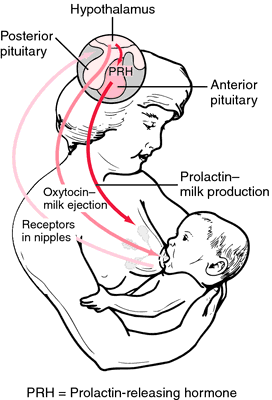Lactation drinks
Lactation describes the secretion of milk from the mammary glands and the period of time that a mother lactates to feed her young. The process naturally occurs with all sexually mature female mammals, although it lactation drinks predate mammals. In most species, lactation is a sign that the female has been pregnant at some point in her life, although it can happen without pregnancy.
Galactopoiesis is the maintenance of milk production. Oxytocin is critical for the milk let-down reflex in response to suckling. Galactorrhea is milk production unrelated to nursing. The chief function of a lactation is to provide nutrition and immune protection to the young after birth.
Due to lactation, the mother-young pair can survive even if food is scarce or too hard for the young to attain, expanding the environmental conditions the species can withstand. The costly investment of energy and resources into milk is outweighed by the benefit to offspring survival. Estrogen stimulates the milk duct system to grow and differentiate. Like progesterone, high levels of estrogen also inhibit lactation.

Estrogen levels also drop at delivery and remain low for the first several months of breastfeeding. Prolactin contributes to the increased growth and differentiation of the alveoli, and also influences differentiation of ductal structures. This hormone is closely associated with prolactin and appears to be instrumental in breast, nipple, and areola growth before birth. Glucocorticoids play a complex regulating role in the maintenance of tight junctions. After birth, oxytocin contracts the smooth muscle layer of band-like cells surrounding the alveoli to squeeze the newly produced milk into the duct system.
It is also possible to induce lactation without pregnancy through combinations of birth control pills, galactagogues, and milk expression using a breast pump. During the latter part of pregnancy, the woman’s breasts enter into the Secretory Differentiation stage. At this stage, high levels of progesterone inhibit most milk production. It is not a medical concern if a pregnant woman leaks any colostrum before her baby’s birth, nor is it an indication of future milk production.